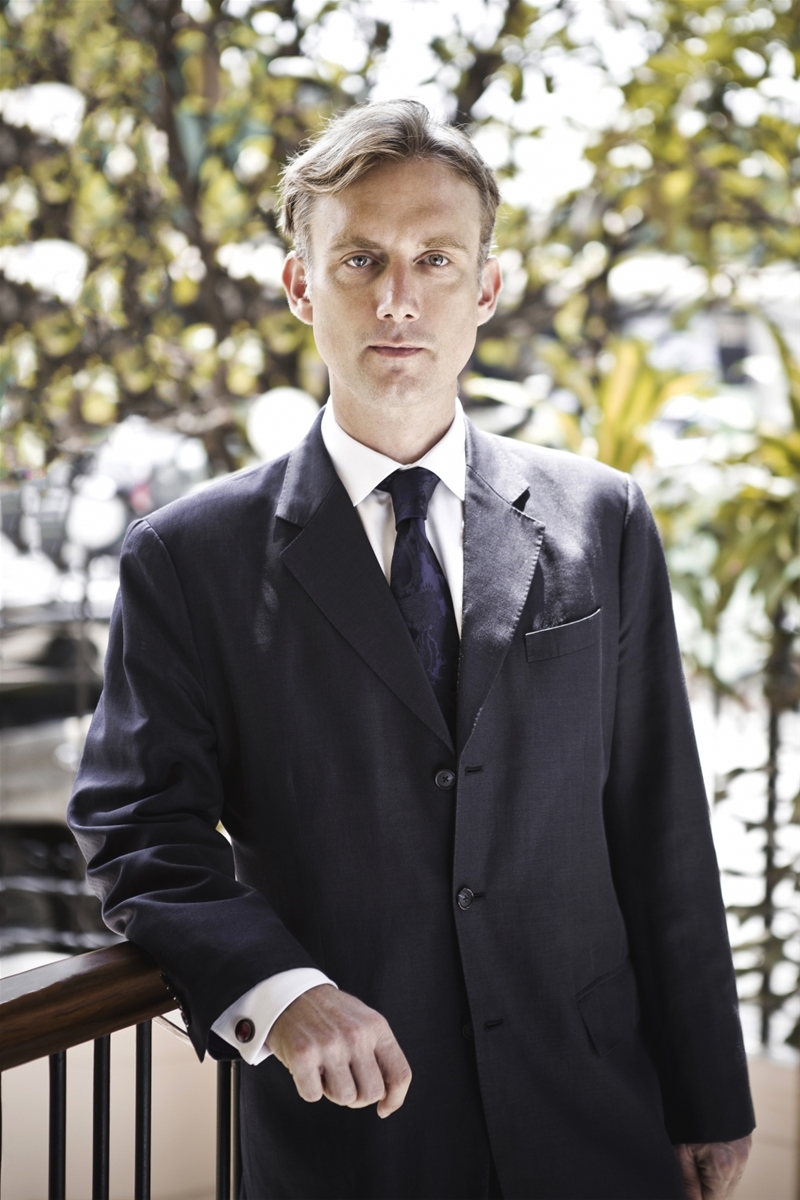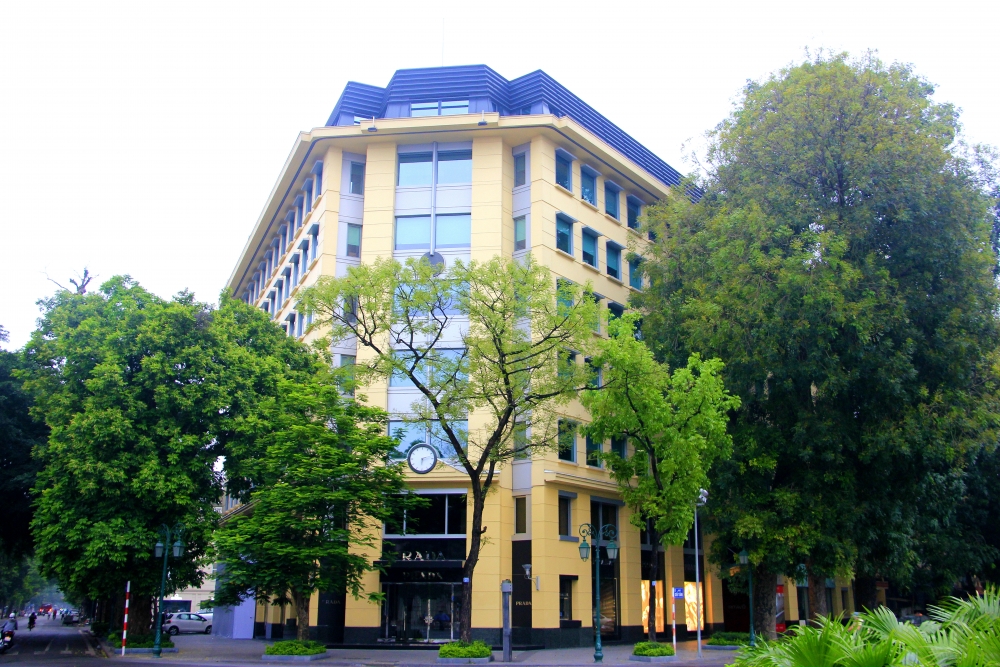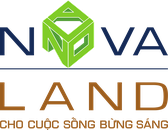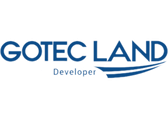
Could you tell us about projects that keep Hongkong Land (HKL) rooted in Vietnam?
After more than 20 years of operating in Vietnam, Hongkong Land now has two premium office buildings for long-term investment: The Central Building (31 Hai Ba Trung) in the partnership with Hanoi Federation of Labor and the 63 Ly Thai To in Hanoi in partnership with Vietnam Fatherland Front.
Located right at the heart of the Hanoi historic capital, these prime office buildings are home for famous multinational corporations, diplomatic organizations and luxury retailers such as the World Bank, IFC, IMF, British Embassy, South African Embassy, New Zealand Embassy, Mizuho Bank, Prada, and Canali, amongst others.
Moreover, we have expanded our portfolio by introducing some luxury condominium projects in Ho Chi Minh City named The Nassim in District 2 of Ho Chi Minh City, recently The Marq on Nguyen Dinh Chieu Street in District 1 and the other in Thu Thiem New Urban Area, District 2.
Located in the heart of the highly popular Thao Dien area in District 2, The Nassim is an urban redevelopment project comprising four towers with 238 premium residential units ranging from one to four bedrooms and penthouses, with in-house parking spaces. Most units will enjoy magnificent panoramic views and the serenity of the Saigon River. The development is fringed by an exclusive enclave of low-rise private residences; and is conveniently accessible from the Hanoi Highway.
The Marq, a luxury residential high-rise building, provides 515 opulent residences comprising one-to-four-bedroom condominiums and penthouses offering stunning views of Ho Chi Minh City, right in the heart of District 1. This project offers a truly luxurious lifestyle for discerning investors. The Marq is Hongkong Land’s second residential development in Vietnam.
Furthermore, we are waiting for approval of the Thu Thiem River Park project, in Thu Thiem, District 2, in cooperation with Ho Chi Minh City Infrastruture Investemnt Joint Stock Company.
Our biggest project by value is the Nassim, and our oldest project is Central Building in Hanoi.
Each succeeding project we have undertaken has gotten bigger and brought new things to the market.
How would you assess property market development in Vietnam in recent years?
The property market in Vietnam has returned to dynamic growth as the economy booms in recent years. Property is always attractive to Vietnamese and foreign developers. Many new potential projects are coming up as investors show strong belief in government policies and foreign direct investment flows into the country.
In the residential sector, the market has witnessed the high demand in all segments including luxury, high-end, mid-end and affordable condominiums. From my point of view, there will be more residential projects coming to the market in the next two years.
With the office buildings segment, we can obviously see high demand because there are more and more foreign companies coming to Vietnam to invest and do business. In addition, more Vietnamese companies are expanding and need more office space.
However, the offices segment size/scale in Vietnam is not big, just one-eighth of Bangkok or Manila. Hence, the demand is always high, and we are quite confident about prosperity in this area in years to come.
Could you share your insights on pricing trends in both commercial and residential properties?
During the last few years, the price for luxury office space has become very expensive in central locations, but it is reasonable outside such areas. Prices are also increasing for residential properties. I think the price will become more stable when greater supplies come to the market in both sectors over the next two years.
What about speculation in the residential sector?
Actually, speculators are important parts of funding for project development. But I think that speculators prefer high-end projects. For mid-end and affordable projects located near schools and supermarkets with good infrastructure, typical buyers really want to live there and enjoy a life with conveniences. In the last two years, we haven’t seen much speculation in this segment.
Why does Hongkong Land focus mainly on central locations to develop its projects?
That is our tradition and strength. Even in other countries like Singapore, Indonesia and the Philippines, we have focused on developments in central locations for the luxury segment. And we have seen that buyers of our projects really enjoy living there.
Which sector has greater development potential in Vietnam in the near future? Residential or commercial?
The current situation in Vietnam’s property market is similar to that of Thailand in the 1990s. Certainly, the residential sector has more potential in coming years because the economy is growing fast and the younger population is increasing. It will be good for house buyers when the government finishes more infrastructure projects and opens up the land. In Vietnam, the affordable residential segment will be bigger. The luxury segment will have potential, but not as big.
Hongkong Land will continue to focus on the two big cities here, Hanoi and Ho Chi Minh City. I see that in these big cities, different sectors carry greater potential. In Ho Chi Minh City, the potential is for developing offices, apartments and hotels while in Hanoi, apartments and hotels will have stronger demand.
What would be your prediction for the Vietnamese property market in general?
Compared with 10 years ago, a foreigner can see far greater prosperity in Vietnam now. The country’s investment laws have improved a lot and it is industrializing at a rapid clip. These factors will boost demand while the current stock is not so high. Hence, I have a strong belief that the property market will be prosperous and attractive to domestic and foreign developers for the next 10 years at least. So there will be more overseas capital flowing into the property sector.

How is Hongkong Land doing in its different markets?
We are focused on three markets in ASEAN now: Vietnam, Singapore and Indonesia. It is very satisfying to see our buildings come up in stable markets. Hongkong Land has been successful in Vietnam and we hope to harvest more fruits here.
What would be your advice to foreign property developers who want to come to Vietnam?
They should be patient. And developers should invest in the major cities with the strategy of carefully choosing partners and working closely with them. We need to bring new ideas, technology and high quality to contribute to the growth of the market.





















